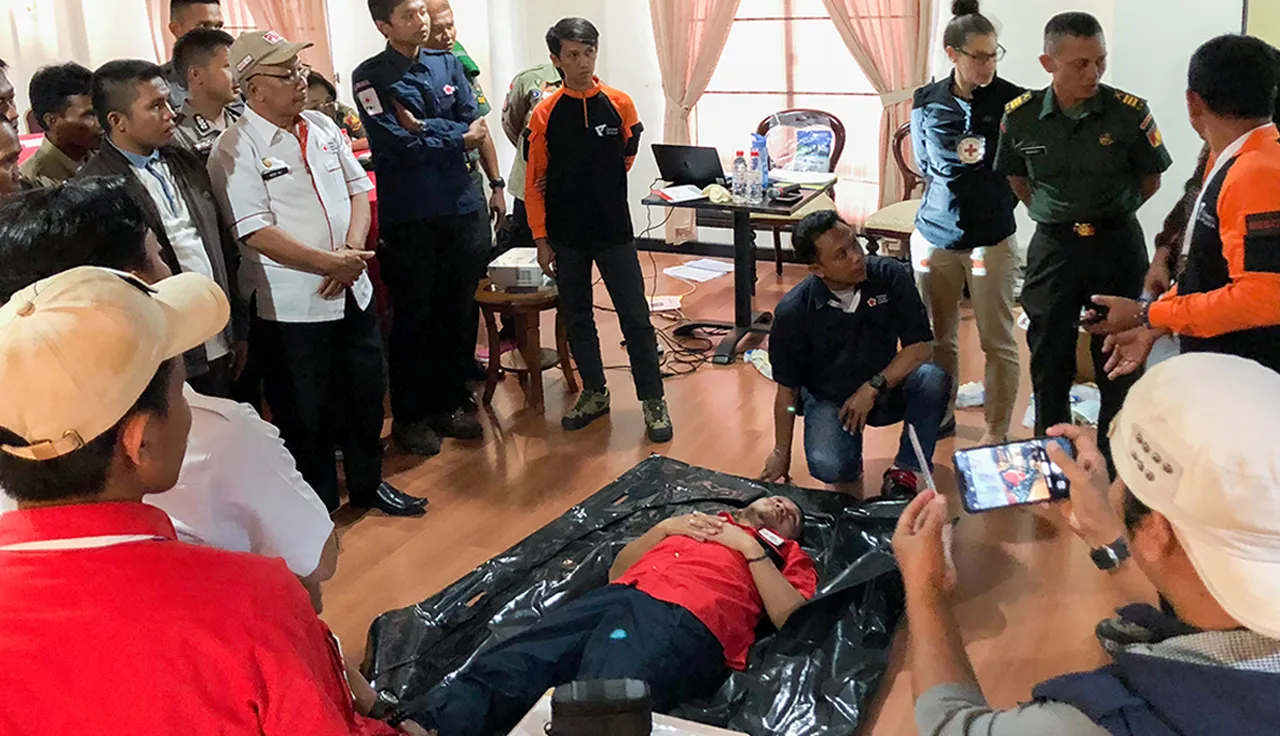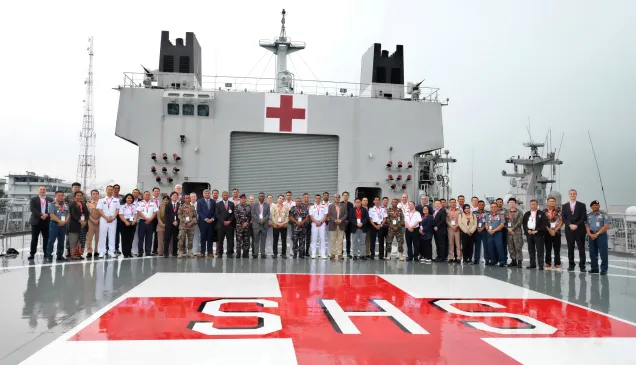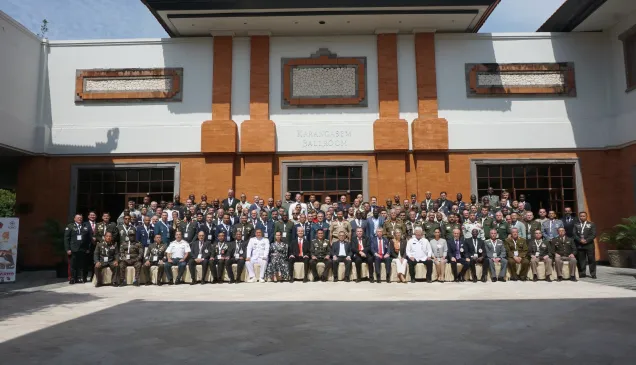Indonesia: 60 first responders get trained in management of dead during emergencies

On 26 and 27 February 2019, the International Committee of the Red Cross (ICRC) organized two sessions to train first responders on how to search for and recover the dead during emergencies. The sessions, held in Palu, Central Sulawesi, were attended by 60 people from different institutions such as the armed forces, police, the Indonesian Red Cross Society (PMI), local government and religious organizations, and observed by 12 local journalists.
The sessions focused on training first responders in accordance with internationally recognized standards to increase their chances of identifying bodies successfully.
Addressing the participants, Longki Djanggola, Central Sulawesi’s governor, said the dead deserve to be treated with dignity, adding, “Identification is important because it determines legal consequences for the victims’ families.”
Agreeing with Djanggola, Eva Bruenisholz, the ICRC forensic consultant who facilitated the sessions, explained that first responders’ initial work during search and recovery is crucial for successfully identifying the dead.
“Management of the dead consists of ten different steps – from searching for bodies to burying someone with a name, an identity. It involves two main providers of aid – the first responders and disaster victim identification experts, who rely heavily on the information provided by the first responders,” she explained.
During the sessions, participants were trained on how to put on and remove personal protective equipment, document and label a body or its parts and fill in the first responders’ post-mortem form properly. They also discussed how Islamic law applies to their work.
Deisy Aristi, a member of TAGANA (disaster preparedness team), thinks the training session will help her with future assignments. “It taught me the proper sequence for conducting search and recovery operations. I also learnt that it is equally important to take care of our security and safety as first responders,” she said.
Another participant, Irwandi Saputra (Bojek) from the Disaster Management Center of Dompet Dhuafa (a leading non-governmental organization in Indonesia), who was one of the first responders on the ground after the tsunami hit Palu, said this was the very first training session of its kind that he had ever attended.
“All first responders should have the basic knowledge and technical skills on management of the dead. I would welcome the idea of having national standards and guidelines on the search and recovery of the bodies,” Bojek concluded.




